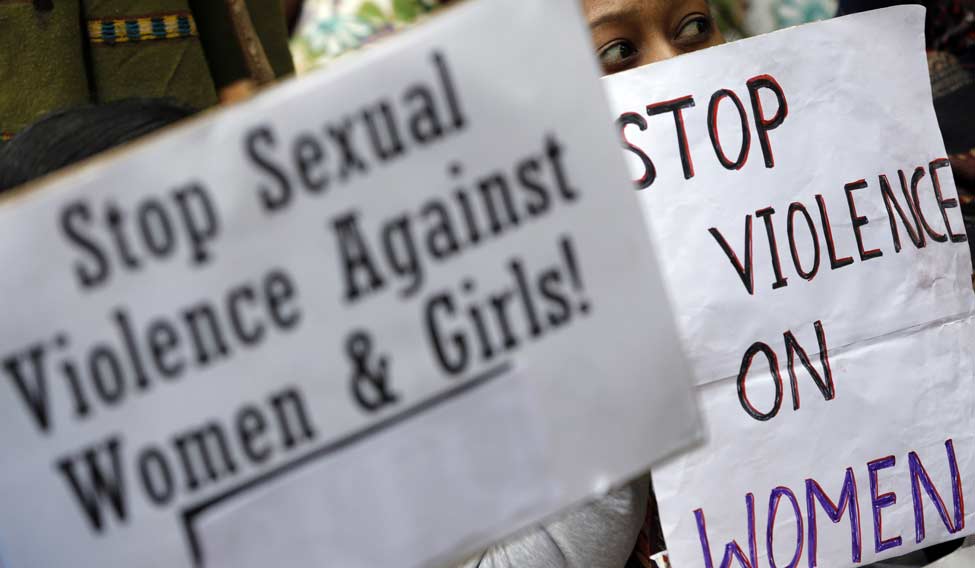Sulekha Devi's husband would often beat her up. A member of the Jyoti self-help group in Sidhaul village of Nawada district in Bihar, she did not see anything wrong with that—it was her firm belief that, as her lord and master, he had the right to do so.
But when she became a part of a three-day training programme under the Population Council’s 'Do Kadam Barabari Ki Ore' (Two Steps Towards Equality), which addresses the issue of violence against women and girls, she realised that she was being exploited.
At a press conference in the national capital on Friday, Sulekha said she came home and resisted all such attempts. “I decided to live my life the way I wanted to and refused to tolerate male violence,” she said. It took a while—there were street plays and short films to sensitise people against women-beating and all forms of violence. Her husband, too, realised that violence was not an option. Sulekha has since been taking up cudgels on behalf of other women around her, ensuring that they are not subjected to violence.
She has no problems facing other men, more so when the women are collectively organised. “Now, gender violence has reduced by 50 per cent," she says.
The Population Council's gender equity programme addresses the unequal gender norms and also highlights the fact that they are justified by both men and women.
They chose the districts of Patna and Nawada in Bihar to test their modules. They used government platforms to do so, so that they could scale it up easily. The programme, initiated in 2012, has proved that they are on the right track.
Amit Kumar, 19, and member of the Nehru Yuvak Kendra in Rakasia village in Patna district is unabashed when he says that he enjoyed passing lewd remarks or whistling when girls passed them. But his behaviour towards women changed after a few months of intervention by the Population Council.
Among many things, they played games, particularly cricket, a game that instilled a sense of fairness. Through the hours on the field, their minds and manners were slowly moulded and mended. Now, he not only realises what he did was wrong, he is a warrior for women's cause. He ensures that the youth in his village do not misbehave with the opposite gender.
Anganwadi worker Phool Kumari from Kurkuri village and Gayatri Devi, an Accredited Social Health Activist (ASHA) from Hinduni village, work in Phulwarisharif block of Patna district. According to them, after being sensitised about women’s rights and the unacceptability of marital violence, they could confidently discuss violence-related matters with women. Gayatri had, in fact, intervened to stop violence against a pregnant mother of three daughters—the husband wanted a son.
According to K.G.Santhya, senior associate, Population Council, a change in gender role attitudes is visible as people themselves have become vigilant. Physical violence has reduced. But, on the flip side, sexual and emotional violence continues.
The training modules have made the society in the districts more egalitarian. The organisation's assessment of the government run helpline showed that women delayed seeking help. But, once they did, the women were consistent with it.
Bihar was chosen as the record of gender equity in the state was poor. Dr Niranjan Saggurti, country director of the lead group in India, said that plans to replicate these modules in other parts of the country were under consideration.




